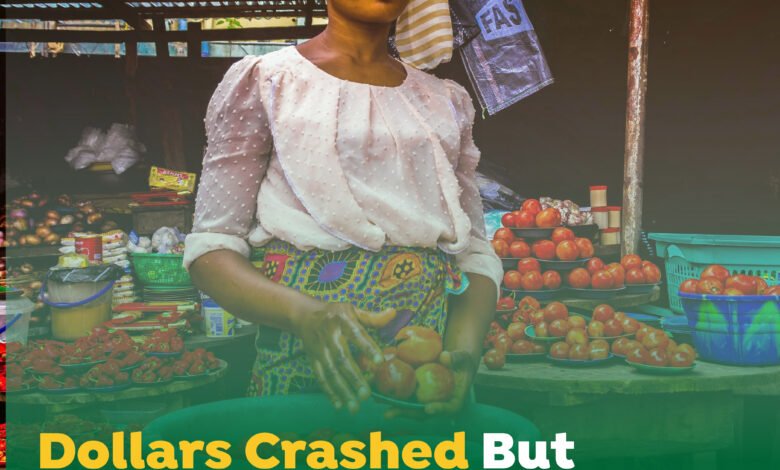
The Naira has gained significantly against the dollar in recent weeks. It now hovers around N1250 to a dollar, marking an approximately 35% drop from the tumultuous period when it traded at N1900 in the black market. The appreciation is largely due to efforts by the Central Bank of Nigeria (CBN), led by Yemi Cardozo, to address arbitrage, enhance dollar supply, clear backlogs, and stabilize the market for investment.
While many Nigerians understandably welcome this development and applaud the strengthening of the currency, they remain puzzled as to why it has not led to a corresponding drop in the prices of goods, especially food items. Previously, food prices had soared due to the increased costs of importation stemming from the Naira’s depreciation against the dollar. But the recent gain in the Naira begs the question: if the ‘rise’ in dollars led to food price spikes, why hasn’t the ‘fall’ of dollars resulted in cheaper commodities?
Explaining this, Dr. Ayo Teriba, a leading economist who is the Chief Executive Officer of Economic Associates, said the challenge is due to stock time and the unwillingness of traders to incur loss. “Foods that have been bought at the old exchange rate will still be tied to the old exchange rate. Whether a month or a quarter, it depends on the duration it takes to order and sell. The effect we should hope to see is that the prices have stopped going up,” he said.
Adeola Adenikinju, the President of the Nigerian Economic Society, echoed the same view in a recent engagement.
He stated that: “To avoid losses, they will still sell at the rate at which they bought it. We will only start seeing the current prices of things as current stock is sold and new stock is acquired. They will be watching the markets to see if CBN will be able to sustain the stability of the Naira.”
However, the Coalition of Northern Groups (CNG) encouraged traders to support the government’s efforts towards ensuring stability, not manipulate prices to record excessive profits at the expense of the public, especially vulnerable members of the population who need affordable access to food staples.
“The CNG emphasizes that businesses must take positive steps to reciprocate the Naira’s stability by lowering the price of their products for the benefit of the common man. Failure to do so may constitute deliberate economic sabotage and exploitative tendencies against Nigerians,” the group said in a statement.
Most economists agree that the prices of food and other commodities will trend downwards with time, as long as the Naira continues to appreciate.





